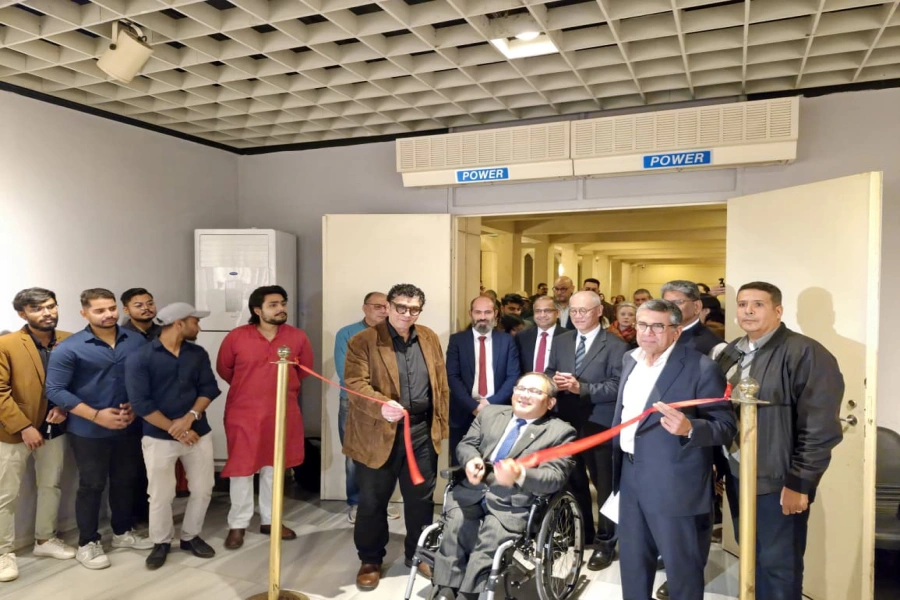About eight years ago, while in a public bus, Anita Ghale Gurung noticed two children communicating in sign language. Since then her inquisitiveness to learn Nepali sign language grew each day. “Even till today I have not mastered the art of communicating in sign language. I do face certain difficulties while trying to communicate with women at my organization. Yet I strive to learn from them every day,” says Gurung, founder of Happy Hands Nepal, an organization established for the empowerment of deaf women in Nepal.
Apparently, Gurung came to know about the deplorable state of deaf women in Nepal while leaning the Nepali sign language a few years ago. She realized that it was almost impossible for deaf women to find jobs in this country. Hence, she established Happy Hands Nepal in June 2016 to create employment for the deaf.
“I strongly believed that deaf women were capable of being much more than just waitresses in selected restaurants. So I wanted to create a platform to empower them,” says Gurung adding that at Happy Hands Nepal they are doing all they can to make sure deaf women get the opportunities that they deserve.
Did your hands freeze this morning?

On a regular day at Happy Hands Nepal, you will find women being encouraged to use their creativity to make DIY products such as cards, gift sets, hand crafted boxes etc. “We support women who are interested in art and crafts to create handmade products. This gives them a sense of autonomy, confidence, and even pride,” says Gurung. The timings to make these products at this organization is however not stringent. They have flexible working hours to help these deaf women balance their personal and professional lives with ease.
Happy Hands Nepal then creates a platform on social media or at various events to sell the products that have been crafted by deaf women at the organization. The profits that are generated are distributed among the women for them to use as they see fit. The stationery and all the other necessary items for making these products are provided to the women at Happy Hands Nepal by Gurung herself.
This is Gurung’s way of trying to make a difference in the society. “My country has given me a lot and now, as a professional woman, I feel it is my duty to give back,” she says further adding that Happy Hands Nepal aims to help deaf women become economically independent. But not only that, they also focus on capacity building and encouraging women to make their own decisions. “We believe that only when women are economically stable and have decision making powers can they be empowered,” she says.
In the short span of just a year, this institution has positively impacted the lives of deaf women working with them. “Our women have become strong, bold, and confident in all spheres. They no more feel like a burden to the society but rather think of themselves as an integral part of urban development. That has been one of our biggest achievements so far,” adds Gurung. And the fact that women at Happy Hands Nepal have also started experimenting with their products goes a long way to validate Gurung’s statements. Many of the products are unique and much in demand in the market they cater to. Gurung claims that the crafted items are often sold at good prices.
Also, according to Gurung, the public response to their work has been overwhelming. “We are getting tremendous moral support and that encourages us to work even harder. But one of the major obstacles that we have not been able to overcome yet is the communication gap between our women and the public,” says Gurung. And though this is one factor that she intends to focus on in the coming months, she believes that without acceptance from people from all walks of life her work will never be complete.



-1200x560-1771928761.webp)




































